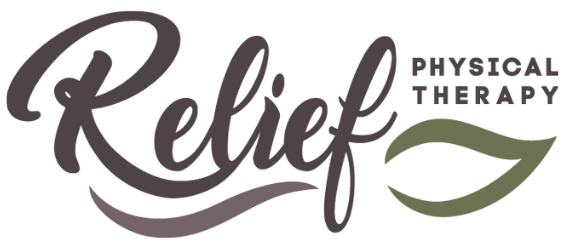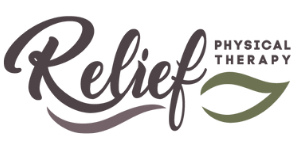Whether you’ve had a quick delivery, or something a lot more complicated, the healing process from childbirth is tricky to navigate. People underestimate the toll of suddenly caring for a newborn, and also trying to allow your own body to heal. New mothers are advised to “take care of themselves”. Great advise- but hard to do while you are taking care of your baby. So how do you manage your postpartum recovery?

Try not to rush your postpartum recovery
Understand that your body will need time to heal. How long depends on many factors. It is common in today’s world for people to focus on how quickly they can return to regular activities. But pushing yourself too quickly is usually not beneficial, and can actually do more harm than good.
Knowledge is power
The more you know about how your body was affected by your pregnancy the easier it is for you to make good decisions about how to care for it. Most physicians schedule a follow up 6-8 weeks after delivery. However, many women are choosing to see a pelvic floor physical therapist earlier than that. Pelvic Floor Physical Therapists help with safe exercises, body mechanics, modifications to activities when there is pain, and generally help you start the recovery process. (You should know that early Pelvic PT may include a visual check of vulva and tissue damage, but does not include internal treatments- to allow the tissue to heal. There is plenty of information to cover without aggravating sore, fragile tissue.)
Whether you choose to get an earlier assessment, or wait until your doctor releases you for “normal activity,” working with a pelvic floor physical therapist will help you understand exactly what is happening in your recovery process. This allows you to feel more confident about when and how to push forward, and when to back off and modify.
Pain is not part of the plan
Women know and understand that childbirth is, at best, uncomfortable. And healing time varies depending on the events during pregnancy and delivery. If you are still experiencing pain when you return for your follow up 6-8 weeks later, it’s time to discuss it. There may be extenuating circumstance that will cause you postpartum recovery to take a little longer. But do not assume that pain is normal, or that there is nothing that can be done.
 Many women think pain, leakage, or other issues are just part of the process. They don’t mention it to their doctors for any number of reasons; embarrassment, shame, fatigue, forgetfulness, etc. This can, unfortunately, be reinforced by others dismissing symptoms as “normal” or saying things like “well, you did just have a baby.” The expectation for women to “bounce back” quickly to their pre-baby selves, not to mention go back to work within 6 to 12 weeks, contributes to women feeling like they need to toughen up and deal with it, rather than speak up and ask about it.
Many women think pain, leakage, or other issues are just part of the process. They don’t mention it to their doctors for any number of reasons; embarrassment, shame, fatigue, forgetfulness, etc. This can, unfortunately, be reinforced by others dismissing symptoms as “normal” or saying things like “well, you did just have a baby.” The expectation for women to “bounce back” quickly to their pre-baby selves, not to mention go back to work within 6 to 12 weeks, contributes to women feeling like they need to toughen up and deal with it, rather than speak up and ask about it.
The expectation for women to “bounce back” quickly to their pre-baby selves contributes to women feeling like they need to toughen up and deal with it, rather than speak up and ask about it.
You don’t need a referral for a Pelvic Floor PT
If you have some questions about your postpartum recovery, it can be difficult to know where to turn. Your doctor has a limited amount of time to spend and tries to be as efficient as possible to get you the information you need. But things definitely slip through the cracks. In many areas, doctors don’t consider referrals for Pelvic Floor PT unless it is a dire emergency because they know it can be difficult to find a qualified therapist. Some women have to travel quite a distance to get treatment.
Fortunately, you do not have to get a referral to see a pelvic floor therapist. In most states, you can schedule directly. Today’s healthcare options often include telehealth visits which make it possible to get care, without leaving your baby. It can be a terrific option for questions and early postpartum guidance.
You are worth it
It has become the norm for women to push their own needs aside for others. Especially when there is a new baby that needs care. Know that taking care of yourself and ensuring your own health will also help everyone around you than needs you and depends on you.
- If you are leaking when you cough/sneeze/laugh- you are stifling your laughter at a joyous time.
- If you are compensating because you hurt- you risk injuring yourself doing daily activities
- If you are afraid to start exercising- you are holding back your physical and emotional health
- If you are gritting you teeth to get through- you are bracing and holding your muscles which actually contributes to pain
- If you feel heaviness or dropping in your pelvic organs- you a will limit your ability to exercise, move, and lift your baby, and that car carrier.
Getting started with your postpartum recovery
Start gentle movement as soon as possible. Don’t push past your pain tolerance. If you cannot relax while doing the activity, chances are it’s too much. Notice whether you are having any unusual sensations. Are you peeing and pooing regularly, without straining or pushing?
Getting enough water? How do things feel when you pick up your baby? Lift the car Seat?
Be careful about going back to intense exercise too early. Ligaments that stretched to allow your organs to move out of the way as your baby grows, need time to recover. High impact activities can strain connective tissue, making it more difficult for it to retract, even if you feel strong. Move forward carefully if you have feelings of heaviness in the pelvis.
 Making the time and investment for postpartum recovery is an essential step to living up to the dreams you have for yourself and your family. You are worth it.
Making the time and investment for postpartum recovery is an essential step to living up to the dreams you have for yourself and your family. You are worth it.
I am a pelvic floor physical therapist practicing in Winston Salem NC. I can help you with postpartum recovery. You can have confidence that you are on the safe road to feeling your best. Relief is possible.
Need More Information?
Click here to schedule a consult
Or Join Our Secret Hot Pocket Society to get information sent to you by email







